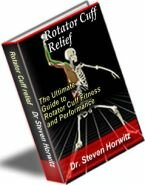Artificial Sweeteners
"Saccharin, the oldest sugar substitute, is 300 times as sweet as sugar. It's found in Sweet 'N Low, the popular tabletop sweetener. After studies in the 1970s found it caused bladder cancer in rats, products containing saccharin had to carry warning labels. But subsequent research failed to confirm a risk to people. In 2000 the government removed saccharin from its list of cancer-causing substances. Still, some human research suggests (but doesn't prove) a link between heavy consumption-six or more servings a day-and cancer. Any increased risk is probably very small."
"Aspartame, used in most diet drinks, is sold as NutraSweet and Equal. It's not as sweet as saccharin and is more expensive. Through the years, it has been blamed for a host of conditions, including brain tumors, seizures, birth defects, multiple sclerosis and lupus, though there's no evidence to back up these claims. Some people also report side effects such as headaches, dizziness and indigestion, but no one knows how widespread they are. The only proven risk is to the small number of people with conditions, such as advanced liver disease, that cause problems metabolizing phenylalanine, an amino acid in aspartame." People with the disorder phenylketonuria (PKU) are unable to metabolize phenylalanine, so they must avoid aspartame.
Quoted directly from The Wall Street Journal, Personal Journal, Aches & Claims, Health Risks WIth Sweeteners?, p.D4, 5/13/03, by Robert J. Davis.
"Acesulfame potassium is sold as Sunett and Sweet One and as the tabletop product Sweet One. In some products it's combined with other sweeteners. Unlike aspartame, it doesn't break down when heated, so it can be used for baking. It has been tesed less thoroughly than aspartame, so researchers tend to know less about it."
Quoted directly from The Wall Street Journal, Personal Journal, Aches & Claims, Health Risks WIth Sweeteners?, p.D4, 5/13/03, by Robert J. Davis.
Sucralose (Splenda) is made from sugar but is created by a complex, multi-step process in which the sugar is converted to sucralose by selectively substituting three chlorine atoms for three hydroxl groups. Marketed as Splenda, it is 600 times as sweet as sugar and is found in some diet drinks and other products and is also ideal for baking. After five years on the U.S. market, sucralose hasn't been linked to any adverse health effects. The independent consumer group Center for Science in the Public Interest ranks sucralose the safest of the four sweeteners.
Stevia is made from a South American herb called Stevia rebaudiana Bertoni and is estimated to be some 150 to 400 times sweeter than sugar. Stevia is almost calorie-free, so weight watchers love it. It is ideal for children since it prevents cavities. Unlike sugar, it does not trigger a rise in blood sugar. You won't get a sudden burst of energy followed by fatigue and a need for another "fix." It is usually found in a brownish liquid concentrate and only a few drops are needed to sweeten a drink. See Stevia for more information.
Pure xylitol is a white, crystalline, natural substance that looks and tastes like sugar. Xylitol's sweeteness is equal to sugar, but it contains 40% fewer calories than sugar. Xylitol is recommended for diabetics, since it does not require insulin to be metabolized.
"In the U.S., xylitol is approved as a food additive in unlimited quantity for foods with special dietary purposes. Over 25 years of testing in widely different conditions confirm that xylitol is the best sweetener for teeth. Xylitol use reduces tooth decay rates both in high-risk groups (high caries prevalence, poor nutrition, and poor oral hygiene) and in low risk groups (low caries incidence using all current prevention recommendations). Sugarfree chewing gums and candies made with xylitol as the principal sweetener have already received official endorsements from six national dental associations." Quote from Xylitol
If you have epilepsy, ask your doctor is Xylitol is safe for you.
"Neotame, a synthetic derivative of a combination of aspartic acid and phenylalanine, the same two amino acids that are used to make aspartame. The bond between the amino acidss is harder to break down than aspartame's, so neotame is more stable." " Our bodies can't metabolize neotame, and only tiny amounts are needed to sweeten foods. Unlike aspartame, neotame isn't broken down in the body into the amino acid phenylalanine, which is toxic to people with the rare disorder phenylketonuria (PKU). Animal and human studies have raised no safety concerns." From Nutrition Action Newsletter, May 2004, p.8.
"Whatever sweetener you choose, don't consider it an excuse to indulge regularly in sweets. Even treats that are sugar-free still contain empty calories. If you find yourself guzzling diet drinks all day, try to cut back and go with water instead. Regardless of what some diet books say, don't feel compelled to replace all sugar with artificial sweeteners. Sugar isn't poison, and sugar substitutes are not a panacea. Both suould be used the same way: in moderation."
A note from Dr. Horwitz- Pure sugar is not good for you and should ideally be replaced by honey or better yet cooking with other spices. As far as the above sweeteners, I recommend using Stevia. However, try to retrain your tastebuds by weaning yourself off sweeteners. You will be amazed at how successful you can be at this and how terrible many things will taste once you've trained your tastebuds.
|
The Ultimate Nutritional Lie Detector Test LEARN MORE 
|
Kettlebell Rehab

Click Here
To See How Kettlebells will transform your body!
Vortex Rehab

Click Here
To See How This
Revolutionary Machine
Can Help You!
Partner / Support

Loans up to 3 months - fast cash advances for up to 90 days and up to $5,000!


















